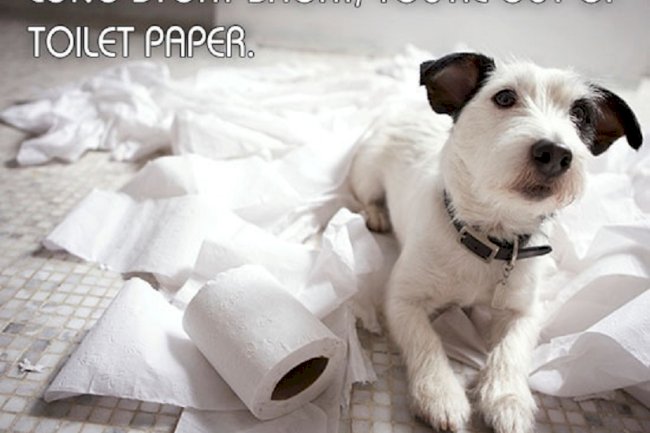4 Dos and Don'ts for maintaining your pet's hygiene
Do and Do Not for your pet's hygiene

Pets may have skin disorders that can induce redness, itchiness, scent, and even wounds. Luckily, regular bathing and grooming will avoid specific skin problems. However, during a routine check-up, your veterinarian can inspect your pet's skin, irregularities may often occur during treatments. If you find any anomalies when you bathe or clean your pet, you can have a veterinarian inspect your pet. Any visible improvements may lead to increased odor and allergens, and in pet irritation or itching. Animals with thick coats of fur are often susceptible to matting.
Your vet will examine your pet and tell you what your pooch needs at the moment; it might be a regular brushing or a change of dog beds.
Take a look at the dos and don'ts for maintaining your pet's hygiene below:
Dos to maintain your pet's hygiene:
Clean the Bed
Dog beds are perfect for having your pup feel relaxed and healthy. The drawback is that the dog beds can get dirty and filthy. Often, we don't start to realize that the dog's health worsens owing to the filthy bed.
The germs can also travel to you from your dog's bed and can make you ill.
Clean bedding helps hold pet dander and fur to a minimum in the room, Poulsen says. This role is particularly crucial if you or anyone in your family has asthma or allergic reactions.
Clean Your Pet's Collar
With regular wear, the pet collars can get quite dusty. If the collar, aside from being dirty, seems to be in perfect shape, then it would be time to clean it and make it fresh again.
Understanding that your pet has a clean collar can relax your mind. It's best to frequently scrub your pet's collar and make sure your pet does not have a smell chasing it anywhere it goes. Most specifically, it will build the ideal atmosphere for bacteria by allowing soil or water to cover it for extended periods.
Brush Your Dog
Grooming is all about preserving the overall wellbeing of both the dog and its look. Brushing is helpful for all forms of pets irrespective of their size; it helps to avoid dead fur, dirt, and dandruff. Daily grooming often allows the natural oils in the fur to flow in.
Another advantage of grooming is that it helps you to test for any anomalies on your pet. It covers skin conditions such as bugs, fleas, and dry spots, including things such as infection, including irritation of their hair, bones, ears, and eyes. Such issues should be dealt with quickly as they are detected at an early point before they have an opportunity to become more severe.
Brush Their Teeth
It might not be easy to clean your pet's teeth, but this is a fundamental component of any pet grooming regimen. In adopting a holistic approach to dental hygiene with your pet, you can effectively address other dental severe health problems such as poor breath, plaque and tartar accumulation, and periodontal disease.
Don'ts
Don't Clip Your Pet's Nails Yourself
Avoid cutting your dog's nails until you have been taught the right method, feel confident doing so, and have sufficient dog nail clippers or a rotary trimmer and supplies to prevent bleeding if it occurs. Too short cuts may cause intense pain and bleeding.
Don't Use Your Shampoo On Them
You must never use human shampoos on your pet. Doing otherwise presents an unnecessary danger to your pet's safety, so it's crucial to inform yourself about the alternatives to using human shampoo on your pet.
Your only choice is to put your dog in the bath or tub, whatever you've got, but then there's the question with what kind of shampoo to use. You can use special dog products made to nourish their skin without causing rashes and irritation.
Don't Treat Any Injuries Without Proper Knowledge
If you find cuts, sores, abrasions, or bruises on your pet of some sort, do not try to cure them yourself unless you have adequate knowledge. Taking matters into your hands can result in harming your pet even more. Call or book a Veterinary consultation.
Do Not Use Your Scents On Them
While a squirt of scent may sound useful to you, it is more like coping with an ape-sized dosage from your pet's viewpoint, which can be quite painful and sometimes overwhelming. When you put on perfume or aftershave and then let your pet sniff it, he'll cry, asking for you to shower him and wash it off. Getting the pet a bath with a scented shampoo appears only to reinforce the prevailing opinion, he'll roll onto the lawn trying to recover his desperately lost pet fragrance.
Article submitted by: Grace Hawkins, first published in: Petlife






















